#innitblr
Text
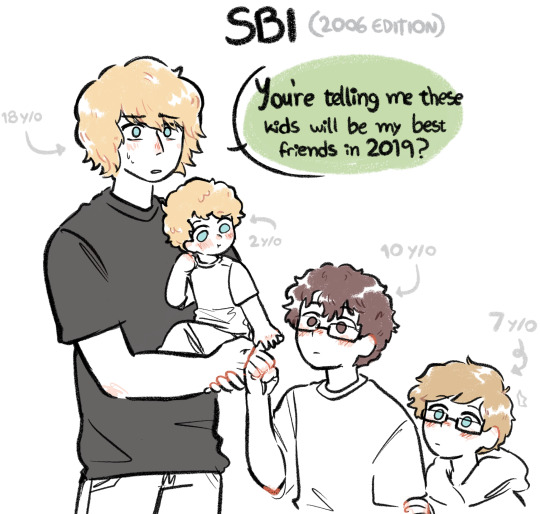
sbi 2006 edition ?!?!!
fun fact wilbur used to have blonde hair when he was a toddler which means two thing: 1) 4/4 sbi were blond, and 2) twins duo real bc techno also was blond when younger and later his hair turned brown like wilbur's
chart with sbi's age difference under cut!
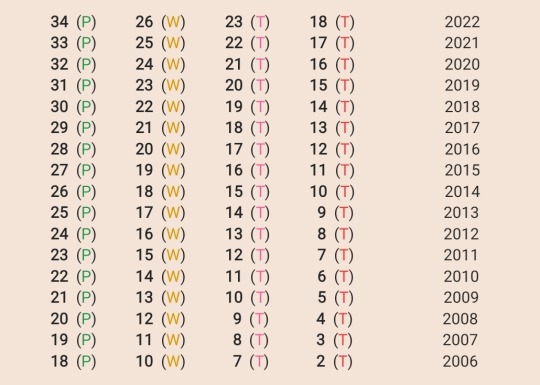
#+ phil's bday its on the 1st of march#so he became a legal adult when tommy was 1 year old techno 6 and wilbur 9#sbi#sleepy bois inc#sleepy boys inc#tommyinnit#philza#technoblade#wilbur soot#sleepyblr#innitblr#bladeblr#zablr#wilblr#emoza giggles#venus does art? pog!
9K notes
·
View notes
Text
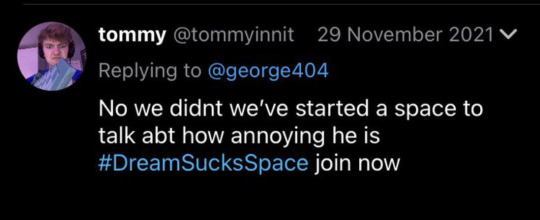


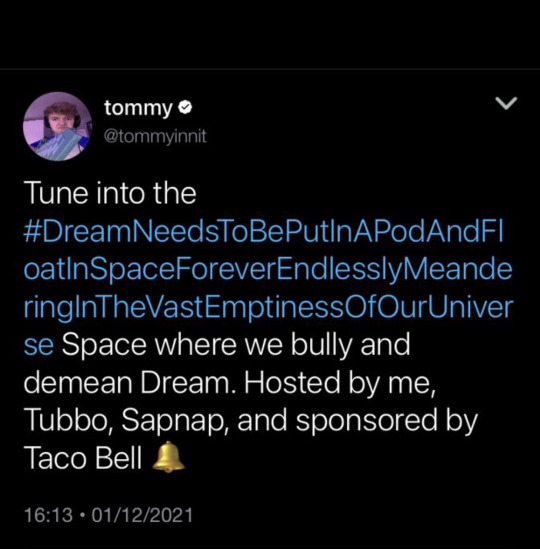
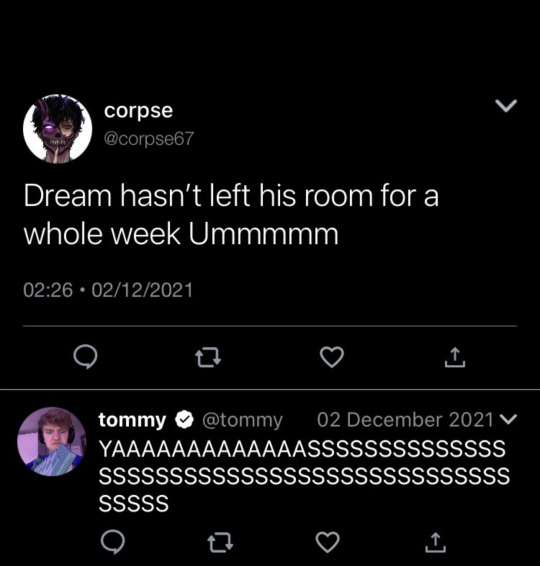
Tommy is really out here manifesting his inner mangoball self
2K notes
·
View notes
Text

the boy!
#origins tommyinnit#tommyinnit fanart#innitblr#o!tommy#o!tommy fanart#fanart#my art#teongkart#challenging myself to just use one singular brush for everything bc i spend most of my time on PS looking for the 'perfect' brush
720 notes
·
View notes
Text

Tom Simons from Youtube is Kenough!
#i made this for myself too#i’m a huge inniter#if tommy sees this i’ll cry#real tags ->#your fave is kenough#your fave is#kenough#tommyinnit#tom simons#innitblr
123 notes
·
View notes
Text
ive been thinking of pogtopia c!tommy recently and i think one aspect that gets overlooked sometimes is how genuinely smart c!tommy can be
my favorite example is when c!schlatt and c!quackity (and possibly c!fundy ?) first find the tunnels near pogtopia, c!tommy is the one to lure them away making a false threat to tear down the manberg flag. he's in a super high stress situation and being mocked and degraded even as its happening and he was able to distract them and protect pogtopia from being discovered. he also snuck into manberg multiple times getting supplies and was the one to successfully sneak c!techno out of spawn area while manberg was searching for both of them
although it gets overlooked often, c!tommy is a genuinely smart and skilled person who is able to work well and make plans on the spot in high stress situations and i think we need to talk about that more
1K notes
·
View notes
Text
I was bored so I drew my favourites(Punz,Tommy,Dream) and put them in the roseate outfits in dst :D


This isnt an au or anything btw,
I just wanted to draw them in funky fits and thought it would be fitting cause valentines day is coming up. I'm not sure how free I am in Feb so have this in case!
Have a small drunz moment btw
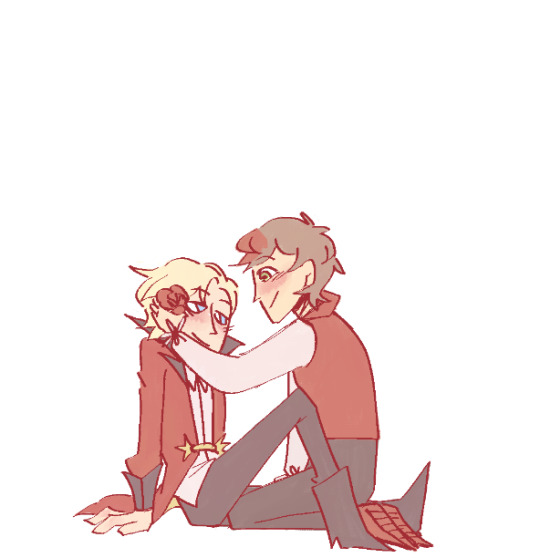
#drunz#discduo#primeboys#dreamwastaken#punzop#dream fanart#dreamblr#punz#punz fanart#tommyinnit#tommyinnit fanart#innitblr#tommyinnit mcyt#dream mcyt#punz mcyt#Ngl they look like vampires#especially punz#roses in Tommy's hair is very <333
266 notes
·
View notes
Text
inniters ily but please keep don't tag other characters in your fics if they don't actually show up... please. Use the 'Dream SMP' ensemble or go back to tag a new character later it's so irritating to try and read a fic thinking your fave will actually be in there and then nope.
#this specifcally happens in the 'c!tommy/bench' genre of fics#dream smp#dsmp#dsmpblr#tommyinnit#c!tommy#innitblr#this has been a psa#/nm btw
101 notes
·
View notes
Text
Bitches be studying for highly academic STEM careers and then be an inniter
#Phd in ctommy studies#im bitches#who couldve though being an inniter inmediatly makes you more elegible for a Phd 100%true#innitblr#tommyinnit
227 notes
·
View notes
Text
Protagonist Paradigm Exemplar - A character analysis of Tommy
(Part 1)
/rp /dsmp
The topic of Tommy’s hero complex is a discussion that pops up every now and then in fandom.
The discussion is often framed around a couple of specific moments: The time Techno asked Tommy whether he wanted to be a hero on Nov 16, and the time Dream accused him of wanting to be one during the Disc Finale.
Many people rightfully point out that being a hero is the last thing Tommy wants. He isn’t someone who’s praticulary driven by justice to protect the weak and helpless. Nor is he looking to be the person to swoop in and save the day, praised and admired for his heroics. In fact, he would probably be more than happy to never be involved with a war or a high stakes conflict for the rest of his life.
However, by focusing so much on those two specific moments the discussion gets railroaded in a particular direction. One that focuses on the idea of “hero” in the context of Theseus and Greek heroes.
Yet that’s not the only possible meaning the word “hero” can have. A lot of people use it as a synonym for the main character of a story. The protagonist. To be clear, despite being used interchangeably by many, protagonist doesn’t mean “hero”. It doesn’t even mean “good guy”. It merely means “main character”.
Having said that, we know Tommy doesn’t think of himself as a hero like the Greeks, but does he think of himself as a hero like a protagonist?
Tommy: “What if- what if the protagonist over there had a family bond that you simply couldn’t comprehend due to your loneliness on this server and lack of family, so he had to stick with him even though there might have been a slight amount of reluctance in there. Also, he’s had some pretty hard times over these past few months, such as exile uh depression uh lots of terrible things so maybe you should go light on this protagonist.”(x)
Yes. Yes he does.
This protagonist complex is something which accompanies the character from his very first days on the server and affected much of his development throughout the plot, but the true origin of Tommy’s protagonist complex started before even that.
It started with the very conception of the character.
Roleplay has always been a part of DSMP’s identity in one way or another. However, back when it first started it was more along the lines of a sketch comedy or a sitcom rather than the epic character-based tale we have today. The ccs would log on and play their personas, bouncing off each other and causing all kinds of shenanigans before eventually resolving it. There was no script to follow, instead the plot was formed through a combination of roleplay and improv etiquette.
It’s no surprise then that many of those personas took on qualities of the archetypes common in sitcoms. Those archetypes are more than just a collection of personality traits, they often also indicate the role a character has in the joke so it’s easy to fall into them naturally when looking to create humor through character interactions. The influence of those archetypes can be seen most clearly in Tommy’s character, but they also helped shape many of the other characters who grew from their streamer’s persona (like Tubbo, Fundy or Ponk, to name a few).
For cc!Tommy, his persona was a mix between what the industry calls Loveable Loser and what Tv Tropes calls unsympathetic comedy protagonist.
Loveable Losers are common sitcom protagonists. They’re those characters who are driven by their want for something, and in their quest for getting that want they’ll manage to go about it in all the wrong ways. Most of the humor with them comes from their impulsive ideas that are bound to get them in trouble as well as their ability to dig themselves deeper once consequences come knocking. The archetype is very much defined by the character losing, and making that loss as hilarious as possible for the audience.
Which is why it’s a natural fit for the unsympathetic comedy protagonist trope. Despite the name, the trope isn’t about characters who are so hateable no one could sympathize with them. They’re about characters who make it easy to laugh at their misfortune when they bring it upon themselves with their harebrained ideas or by being a jerk.
Of course watching such a character would get tiring fast, so the “loveable” part comes in to balance it out. Whether through their charisma, hidden heart of gold or just an otherwise adorable or cool manner, the character endears themselves to the audience with their charm and makes it fun to watch them, not just to watch them fail.
cc!Tommy relied a lot on what makes those archetypes function in his streams. There was this routine he would do in the early days of the server. He would log on, hatch up a zany scheme (often one which involved getting power, scamming someone or scamming someone in order to get power) and set about implementing it until something went wrong or he provoked people enough that they decided to retaliate.
What followed next was sure to be hilarious. With everyone else also being some shade of asshole, it made it easy to laugh no matter whether our loveable loser ended up bemoaning losing all of his stuff in the conflict again or if he somehow managed to overcome all the obstacles in his way and emerge victorious.
Part of what made this routine so compelling is that it gave cc!Tommy a great way to generate conflict and keep things exciting. Conflict, as we all know, is the bread and butter of stories and indeed that’s what his streams ended up feeling like. Like a story where things were happening, rather than just people hanging out on a live stream.
When cc!Wilbur joined the server the roleplaying really went up a notch. The scope of the bits increased. No longer did they fully revolve around minecraft mechanics - with the main sources of conflict being stolen items or murdered pets - but now they were also about drug monopolies and rebelling countries.
The comedy show aspect was still there but it existed alongside other kinds of stories being told. Sometimes more literally than others. It’s well known that during the Independence War cc!Wilbur and cc!Tommy were constantly referencing the musical Hamilton, with cc!Wilbur taking on the role of the mentor character, George Washington, while cc!Tommy adopted the role of Hamilton, the main character himself.
However, unlike the sitcom archetype cc!Tommy played up to that point, the character of Hamilton embodied a more heroic archetype. The impulsive sort, who doesn’t think before he acts but has his heart in the right place. Who despite all his faults still wants to do the Right Thing. You know the one.
That archetype wasn’t hard to incorporate into Tommy's existing characterization. He was already impulsive and not prone to much thinking. He had enough Pet The Dog moments to show that he did indeed have a golden heart underneath all of his many flaws. The only problem was the part about doing the Right Thing.
You see, sitcom characters don’t often concern themselves with the morality of an action, at least not anything beyond what could get them into trouble. Philosophizing too much about Right and Wrong tends to kill the humor, especially when the characters are all assholes to one degree or another. As such, the archetype doesn’t have many internal values associated with it in that regard.
The heroic archetype… also doesn’t have many values associated with it, surprisingly enough. It wants to do the Right Thing but once we start looking at specific details they get a bit scarce. Heroic characters rarely fight because of a specific ideology. More often than not they do so because they have some kind of personal stake in the issue. Those who do fight for a specific ideology tend to be portrayed somewhere in the range between a well intentioned extremist and a villain.
Still, there are some commonalities which tend to emerge. Power is Bad, unless the Right People have it. The status quo is Good, or at most it was Good until the villains made it Bad. Fighting for the personal is more heroic than fighting for the utilitarian big picture. Etc, etc…
Yet, where in most heroic characters those values are baked into the personality (to various levels of success), with Tommy’s character they’re tacked on top the sitcom archetype. Something which creates a lot of dissonance between what the character says he values versus what his actions show he values.
The combination of those two archetypes creates another interesting aspect to it. Both of them are commonly seen with main characters. It makes it easy to look at Tommy’s character and see him as a protagonist, if only because of how familiar that kind of character is. It doesn’t help that cc!Tommy plays into that familiarity because, well…
cc!Tommy: “Until the exile arc my character was basically just me cause I just assumed I was the main character.”(x)
However, DSMP is not a book or a movie. It’s a roleplay, it has no main characters. Or alternatively, everyone is a main character. Everyone is complex and three-dimensional, with their own agendas and internal worlds that don’t revolve around any other character. Furthermore, it’s a story told live on a minecraft server. The cc’s ability to make the world of the story bend over backwards for the sake of the plot is pretty limited. While stuff can be arranged, it’s not common.
So what we end up with is a character who acts like he’s the main character, expects the story to revolve around him like the main character, but isn’t actually the main character.
What we end up with is a character who has all the makings to be someone with a protagonist complex.
Of course, just because a character has the potential to develop a protagonist complex doesn’t mean they will. While those OOC reasons planted seeds, it’s really the plot and the character’s history which really made Tommy’s protagonist complex blossom.
We see those seeds in the way c!Tommy acted during the pre-L’manburg era. From the very beginning he viewed himself as set apart or more important than other people, whether it be by thinking he’s above rules he himself set(x) or by barging into meetings and talking over people to insist his issues were more important than whatever problem they were dealing with(3:43). At his worst, he went so far as to completely disregard any problems people had with him(x).
We see it also in the way he approaches morality, thinking he’s always a good person(x) or in the right(x) regardless of circumstances, as well as judging if someone is his friend by whether they’re on his side or not(x). Protagonist centered morality is what happens when a story treats everything the main character does as Right simply because they’re the main character. Usually it’s a meta trope, used to discuss the narrative, but here we see that Tommy believes in-universe this is how the world works.
Yet that belief is not confined to a single trope. Just in general Tommy seems to believe that life runs on narrative conventions.
Tubbo: “Wait what made us in the right to begin with? Maybe we’re the bad guys.”
Tommy: “No because we’re the funny guys and they’re always in the right.”(x)
Is it any surprise then that when Wilbur came on the server, spinning tales of evil tyrants and heroic revolutionaries, Tommy believed him wholeheartedly?
Not only did the stereotypical story make sense within his existing worldview, it came from Wilbur. Wilbur, who was Tommy’s guiding light. The one he trusted to point him in the right direction and hold him back if he goes too far. His mentor in all but name.
So when the time came to create and fight for L’manburg, Tommy threw himself into playing a persona that would fit the role of heroic underdog revolutionary that Wilbur’s tale laid out for him. As a result, L’manburg lies in the core of the persona he builds, in more than one way.
There are the obvious moments, like the ones we see during the Independence War where Tommy acts for the sake of L’manburg. Nothing says “heroic main character trying to salvage a hopeless situation” quite like butting into the leaders’ surrender negotiations(x) or making the fate of the entire country lay on his shoulders in a one on one duel with the enemy leader(x). Even the character arc Tommy acted out during all of it, of learning to believe in something bigger than himself and act on that belief - to be selfless for a change - fits the heroic persona he was playing.
(And it is playing rather than a genuine arc. Tommy shows a few notable moments of change, such as when he refrains from griefing Dream’s house or gives up the discs for L’manburg’s independence, but there’s no consistent followup on them later down the line. He continues to grief others and even ends up endangering L’manburg in his quest to get the discs without so much as reflecting on those acts. No actual internal change came from this arc, not even one that Tommy ended up backsliding on.
As cc!Wilbur said: “[Tommy] flips his values radically based on tiny non-emotional changes in his environment.”(x) For this reason, I’m describing him as acting a heroic persona which fits his situation rather than say he’s a heroic character with flaws.)
There are subtler ways in which L’manburg influenced Tommy’s protagonist complex as well. One of the first real values Tommy picks up, the values that actually stick with him and consistently influence his actions, is that L’manburg is Good. A value which was only reinforced by him trading the discs to secure its freedom. After all, his discs were Good, right? And if he gave them for L’manburg’s sake that must mean that L’manburg was also Good. Good enough to be worth his precious discs.
But more than that, L’manburg only existed because of his discs. Because of him. Or at least that’s how Tommy saw it. More than once he brought up how he gave up his discs for L’manburg(x) in order to argue that it’s worth preserving and keeping. In fact, it can be argued he felt entitled to L’manburg for his role in its creation.
On the flipside, feeling like L’manburg is his meant that any attacks against the country felt personal, like they were attacking all that Tommy did in order to preserve the country. And considering how L’manburg has been in the center of most conflicts on the server up until it got blown up for good, that made Tommy feel like all those conflicts were personal to him. Even when the other side's desire to destroy L’manburg was completely unrelated to Tommy.
This only reinforced the mindset that he was the one at the center of the story, the one the narrative of the world orbited around. A mindset that eventually led him to proclaim, “This server wasn’t about- this! It wasn’t- It was about me and Tubbo fighting Dream!”(x) when he saw the world moved on and changed during the month he was stuck in prison and/or dead.
(For the sake of not being misunderstood: Yes, Tommy said that because he was freshly traumatized from the events of the prison and his death. No, this does not contradict what I just said. That trauma didn’t create the sentiment behind this quote, it just brought Tommy to a mental state where it became a problem.)
We see Tommy’s possessiveness over L’manburg most obviously after Schlatt wins the elections. When Wilbur does his bad guys speech and asks if he’s the villain for trying to overthrow Schlatt, Tommy answers that he isn’t because “we started L’Manburg and… we should have won that vote.”(x) Even after Wilbur challenges him, correctly pointing out that Schlatt’s appointment is completely legal, Tommy continues acting like Schlatt usurped the throne of L’manburg away from its rightful heirs.
Yet for all of the ways in which Schlatt threatens Tommy during the Pogtopia arc, the one who truly leaves his mark is WIlbur.
Much of Tommy’s protagonist complex can be traced back to Wilbur’s influence in one way or another, an influence that is inextricably linked to the way Tommy sees him as his mentor. Despite being more self aware about it, Wilbur also acts like life runs on narrative conventions. This reinforced Tommy’s own belief, both because Tommy adopted a lot of Wilbur’s mannerisms but also because Wilbur treated him like a protagonist.
Wilbur: “And here’s Tommy. Here’s the man of the hour himself, Tommyinnit. The protagonist is finally here.”(x)
He even went out of his way to put Tommy in the spotlight sometimes. Such as when it was time to kill Schlatt and Wilbur decided to give Tommy the “honor”, despite there being people (like Niki, Tubbo or Quackity) who have an equal or greater claim to that honor due to being personally victimized by Schlatt(x).
But Wilbur’s biggest influence came from his downward spiral. “Let’s be the bad guys,” He told Tommy, “let’s blow that whole thing up!”. In that moment Tommy’s mentor died, stepping out of the story and leaving in his place a threat he had to contend with.
Like any mentor dying, this too forced the “hero” to stand on his own two feet rather than rely on someone else. It’s at this point in time that Tommy really internalizes the role. If Wilbur kept talking about being the Bad Guy, Tommy - who wants to stop him - is by implication the Good Guy.
We see it in the words he chose to use when arguing against WIlbur. “[Blowing L’manburg up] isn’t the moral thing to do,”(x) He told Wilbur when they first discussed it. A sentiment he didn’t express a few days before when he wanted to torch Manburg to the ground to avenge Wilbur’s honor after Fundy disowned him as a father.
Tommy: “Wilbur, take one look at Manburg. Cause it ain’t no more!”(x)
Because really, it’s not that Tommy suddenly gained a conscience about property damage. He didn’t. Even months later he would suggest blowing up the community house and had to be talked down(x). Rather, it’s Tommy retreating further into the “heroic” role in order to distance himself from Wilbur’s “villainous” role.
(Ironically enough, it’s at this point where he embraces the “heroic” role the most that he starts to reject the narrative Wilbur creates for him. The one that places him as the most important person. The one that would place Tommy as the president.)
Wilbur’s tales worked too well, and by the time Pogtopia came Tommy bought into the myth of L’manburg just as much as he bought into the myth of his discs, in a way that was independent of its origin. Seeing Wilbur - the man who came up with the idea and taught it to Tommy and bolstered his faith when it faltered. Seeing that man trying to shatter the myth and go against it shook Tommy to the core. It would’ve been like seeing Tubbo trying to burn his discs.
The more Wilbur spoke about destroying L’manburg the more Tommy dug his heels into the opposite position. If Wilbur wanted to blow it up, Tommy made sure to not allow a block to be out of place, even if he needed to grief Manburg as a distraction(x). If Wilbur went around calling himself the villain, Tommy would pull out the most stereotypical heroic arguments regardless of how relevant they were to the situation(x).
All of this, in addition to Wilbur’s death, left a deep imprint on Tommy. So much so that even months later he talks about the way Wilbur’s “let’s be the bad guys” line rings through his head when he tries to sleep(x). The ghost of that experience haunts him and even without Wilbur around Tommy tries to distance himself from being the “bad guy”.
However, it’s important to note that there’s a very specific kind of “bad guy” he tries to avoid. The image of the “bad guy” Wilbur evoked in his speech and downward spiral. Image being the key word here.
For all he talks about not wanting to be the bad guy, he sure doesn’t mind taking the same actions said bad guys take. That double standard is there in many of his actions, but we can see it even with his objection to Wilbur’s plan to blow up L’manburg. I’ve already talked about how he’s not really opposed to property damage, but one may argue that the thing Tommy took issue with was abandoning L’manburg rather than the way it was done.
Tommy: “So you have all the discs?”
Tubbo: “I believe so, yes.”
Tommy: “So- Sit with me, Tubbo. Right now we could- I mean we could run away from here and we’d never have to- We have everything we ever wanted.”
Tubbo: “We have everything we care about.”
Tommy: *resolute* “No. We can’t. We’re here for L’manburg. We’re not giving up now. We’re gonna restore it.”(x)
Except later in the day, after Wilbur made his speech and Tommy argued with all those pretty words, Tommy considered the very thing he condemned Wilbur for.
While he ends up deciding not to, the way he frames those two situations is very different. With Wilbur he framed it as a moral issue. But when he himself considered the idea, Tommy framed it more along the lines of whether it’s worth it to fight. Not because L’manburg may not be worth saving, but because the fight is hard and they may lose.
What we see here is Tommy’s protagonist centered morality from the early days after it has been entangled with the myth of L’manburg and the heroic role Tommy has been playing all this time. By the time the events of Pogtopia finished, that mindset grew much worse.
This was not helped at all by what came next.
Exile.
Exile did many things, but most importantly in the context of Tommy’s protagonist complex, it cemented Dream’s role as an irredeemable evil villain. Where before he saw Dream as his arch nemesis but still could accept the good sides in him (to the point where he seemed genuinely surprised that Dream wasn’t on their side during for the Pogtopia-Manburg war(x)), now the resulting trauma clouded over any attempt to see Dream outside that role.
Something which Dream abused mercilessly.
In order to pull off the Disc Finale the way he wanted to, Dream had to make sure his actions won’t be looked at too closely. Many of his actions and mistakes would make anyone familiar with his methods raise an eyebrow simply by how stupid they are for achieving his stated goal there. That level of scrutiny wasn't good for someone who relies on information warfare as much as Dream does.
So for the sake of masking his goals and win conditions, Dream played into Tommy’s existing expectations. All of which were colored through his belief that the world runs on narrative conventions with Tommy as the protagonist.
Confirmation bias is a powerful tool and we see Dream continuing to adjust his persona to give Tommy exactly what he expected. “Why?” Tommy asked, and Dream answered: “The server will be at peace now.” “Couldn’t you just do it to me?” Tommy continued, and Dream changed tracks: “This is much more fun.”(x)
The way Dream went about Doomsday was in large part because he needed to establish his supervillain persona before the Disc Finale so it won’t seem like it came out of nowhere. As soon as he got his hands on Tubbo’s disc, Dream switched from his normal, more reasonable demeanor to that of a blatant villain. The more stereotypical the better.
Techno: “Dream, Dream, what’s our plan for tomorrow? Why did you give them a full day? We could’ve been back there in like thirty minutes, Dream.”
Dream: “Well, it’s like an evil villain thing, right? Like you give them time and then-”
Techno: “Ah, an evil villain thing. Cringe. Been watching too much anime.”(x)
From Tommy’s POV, this didn’t seem like an abrupt change but rather Dream taking off the mask and showing his true colors, confirming what he always thought about him.
In fact, everything from exile up until the Disc Finale served to confirm and reinforce Tommy’s perception that the world runs on narrative conventions. Not necessarily because all of it was meant to cause that impression, but because thinking this way made it easier for Tommy to cope with all he has been through.
Tommy: “I fucking miss when times were simpler. When all I had to worry about was defeating one big green guy.”(x)
Seeing the world through narrative conventions allowed Tommy to make sense of things. There are certain ways in which stories go. Consistent arcs and patterns that show up over and over again. If Tommy is the protagonist and Dream his antagonist, that makes the way forward clear. He can rely on tropes and countless other stories told before to figure out what’s going on and put it in context.
But it’s also something that brings comfort. Stories are neat in a way that life isn’t. The good guys win, people learn to be better and once the bad guy is taken down everything is resolved. Tommy held on to the hope that once Dream was defeated, it would all turn out alright, even when Dream’s defeat didn’t logically solve the problems he was facing(x).
Dream’s supervillain persona being so stereotypical and generic made it easier for Tommy to believe in it. It played into two of his beliefs at the same time. Both that life runs on narrative conventions and that Dream is a mustache twirling villain. He had no problem believing Dream would monologue his actual plans or have an evil lair where he puts his schemes on display, because that’s just how villains act, right?
And if Dream is the evil villain and Tommy opposes him, that makes Tommy the hero right? The only one, by choice or by fate, who’s capable of stopping the villain’s evil.
Tommy: “[Dream] was just here to make sure- ‘cause I’m the only one that will thwart him. I’m the only one that Dream’s scared of.”(x)
As a result, Tommy ends up defining himself in large part through his opposition to Dream, which has the same effect as his desperate attempt to distance himself from Wilbur and the “villainous” label he chose during Pogtopia. Only by comparing himself to Dream he also exacerbates his tendency to think he’s always in the right. After all, when the bar for “evil” is set as low as Dream placed it, any lesser fault comes across as inconsequential.
We can see the results of how much he defined himself in his opposition to Dream in him saying that he feels like he has no purpose without Dream(x). We can also see it in his mindset in exile. In fact, this mindset is what allowed him to escape exile in the first place, which is another reason why it’s so hard for him to let go of that mindset.
However, it also opened him up to being more easily manipulated by Dream. Someone who always says no is just as easy to manipulate as someone who always says yes, the key is just presenting your goals as the opposite of what they actually are and then watch the victim rush to be a contrarian. Lying to Tommy also became significantly easier by abusing that persona and narrative conventions to get him to believe it.
Something the Disc Finale shows perfectly. Dream set up the confrontation and played the villain to a T, allowing Tommy to get a storybook ending while giving Dream exactly what he wanted.
This storybook ending marks Tommy’s “completion” of his hero’s journey, and unfortunately it also marks Tommy’s protagonist complex being fully cemented.
300 notes
·
View notes
Text

having so much fun with this style rn
#mubs.art#c!tommy#c!tommyinnit#dsmp fanart#ctommy fanart#dream smp#religious c!tommy#church prime#innitblr#dsmpblr
139 notes
·
View notes
Text
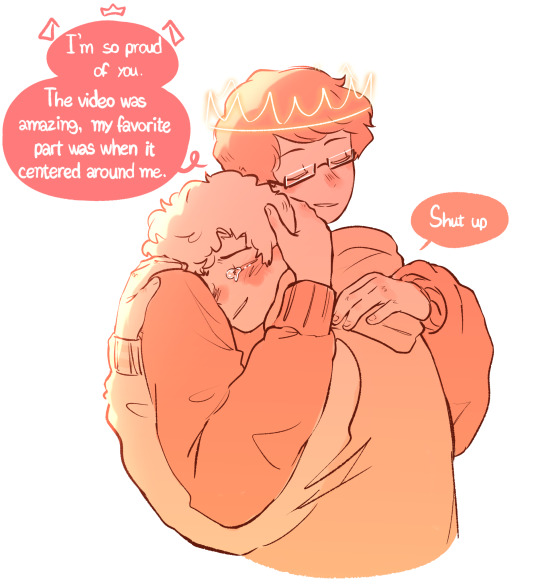
a hero hugging his brother ❤️
#tommyinnit#technoblade#bedrock bros#sbi#sleepy bois inc#bladeblr#innitblr#sleepyblr#death cw#cw death#death tw#tw death
9K notes
·
View notes
Text
This literally came to me in a dream and I tagged all of my inniterblr friends in it.
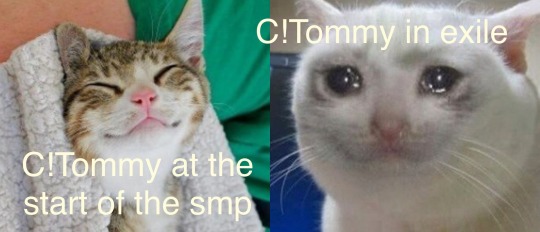
69 notes
·
View notes
Text
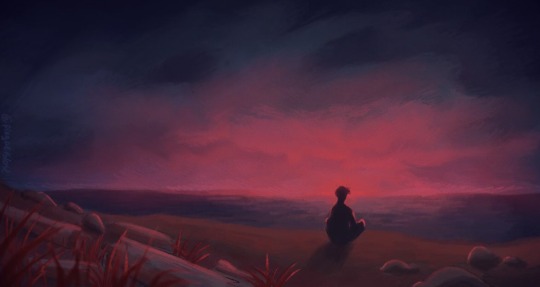
loose ends
[context: originally posted on twitter right after the c!wilbur finale]
#tommyinnit fanart#tommyinnit#innitblr#dream smp#dsmp#dsmp fanart#mcyt fanart#mcyt#mcytblr#art#fanart#digital art#c!tommy
88 notes
·
View notes
Text
"You may have heard of him."
fic: The Children's Rebellion (Aria Cinabun)
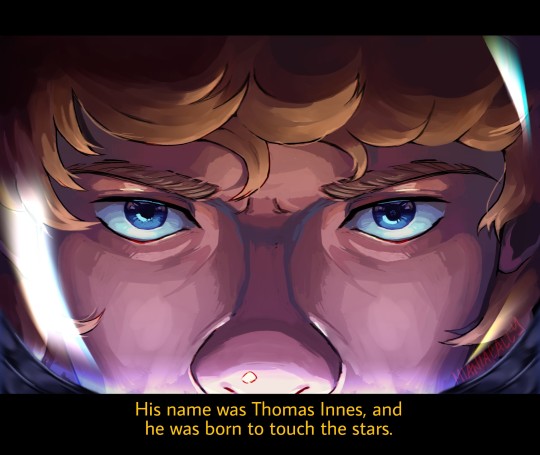
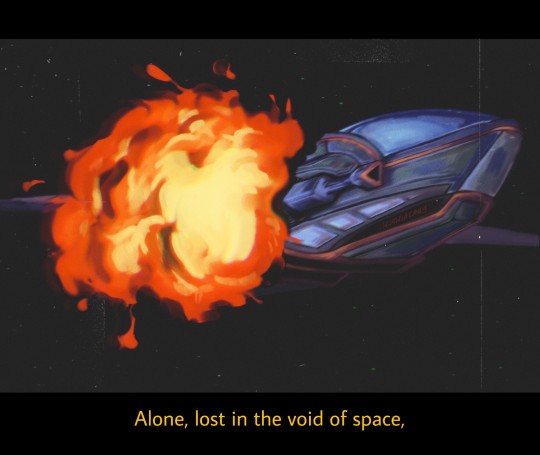
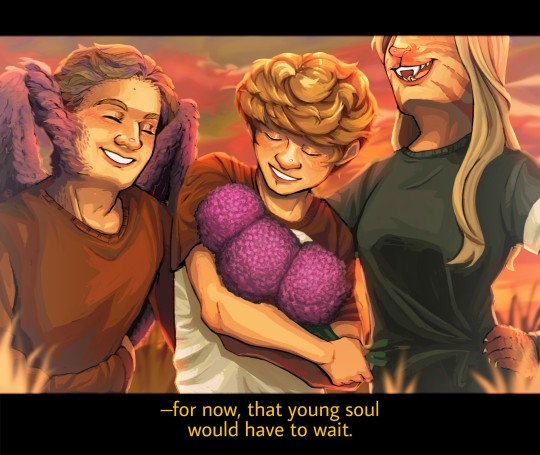
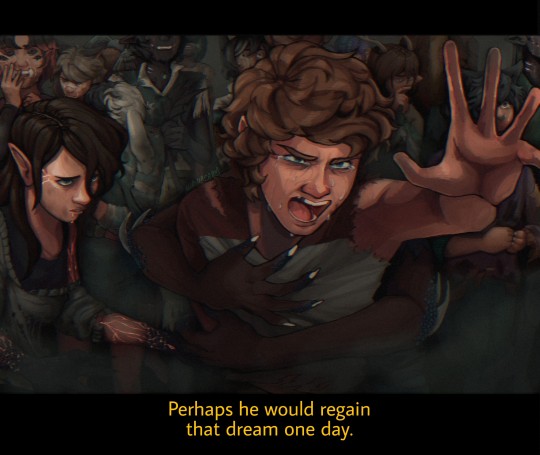
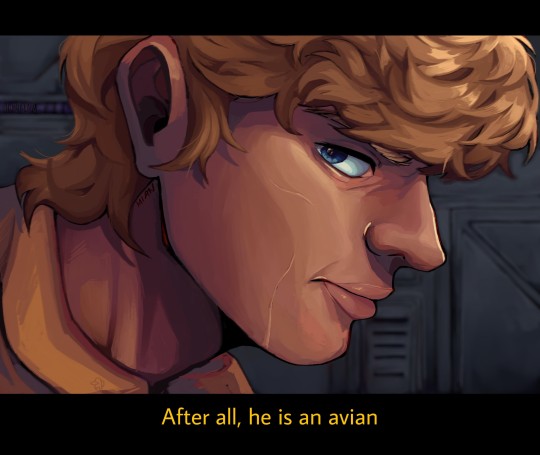

after 3 whole months, i present fanart of one of my fav fanfics :) <3
edit: lmao a couple of ppl found the little amongus -es i hid in each pic on twt
#tommyinnit fanart#dream smp#the children's rebellion#mianicart#mcyt#tommyinnit#dsmp#digital art#innitblr#mcyt fanart
266 notes
·
View notes
Text
Reblog this if you want to be featured in my mutual battles poll
37 notes
·
View notes
Text
o!tommy is a strawberry finch btw

reasoning:
- red and white colors (duh) but also the wings are black like o!philzas wing color since theyre family
- highly social and live in large groups like how everyone lives together/near each other in osmp
242 notes
·
View notes